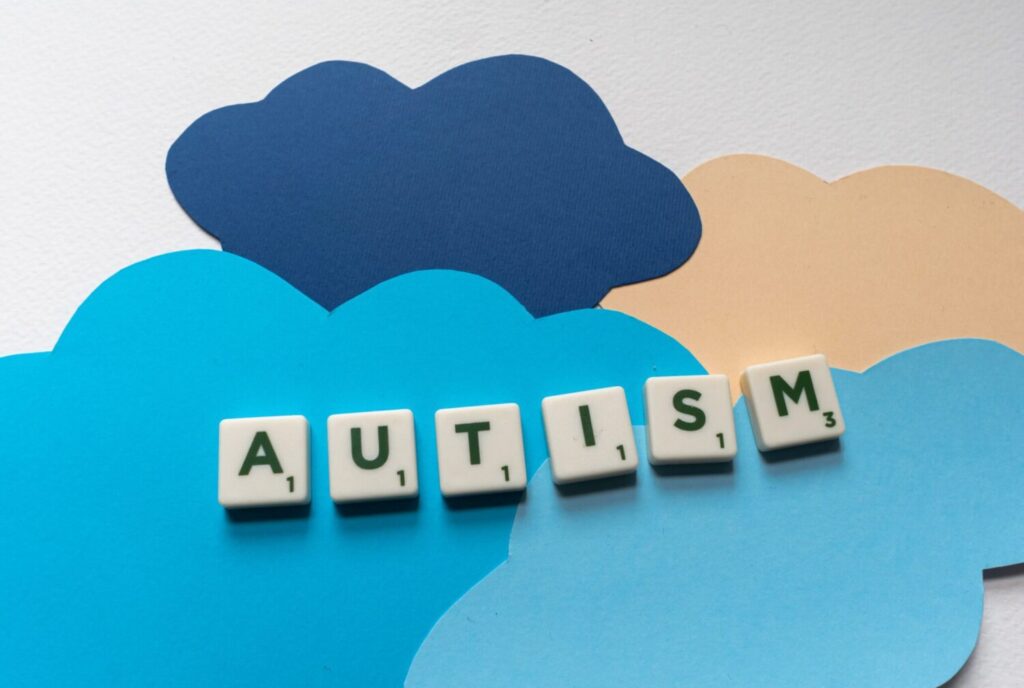What is Autism
More than 1 in 100 people are on the autism spectrum and there are around 700,000 autistic adults and children in the UK. (Autism (who.int))
There are no two people the same, just like there are no two people the same with Autism. Everyone who has a diagnosis with Autism will present very differently from one another. Of course, there are some similarities and traits which seem to be more common with people who have Autism. What is autism? – NHS (www.nhs.uk)
Though every person on the ASD spectrum is a unique individual with skills and challenges of their own, they often display similar characteristics across a number of categories; Social, Communication and Behavioural.
11 signs of Autism
- Some sensory difficulties; dislike of certain textures, tastes and noises
- Intense and highly focused interests, often from a fairly young age
- Preference for routine, structure and doing things in a certain way
- Enjoying time on their own and seeking out alone time to escape people
- Finding it hard to form or maintain friendships
- Struggling with changes in routine, or when things do not go their way
- Finding it hard to have a conversation with people and peers and knowing what to ask or say
- Struggling with rules being broken in school by other peers and misbehaviour
- Engaging in repetitive routines or movements
- Limited expressions or gestures when communicating
- Finding it hard to express their feelings or read other people’s emotions
Common questions & worries about Autism
Will it affect my future if I receive a diagnosis of Autism?
Although some view a formal diagnosis as an unnecessary label, many may find that receiving an accurate assessment and diagnosis in a timely manner may be beneficial for the following reasons:
-
- You might find it useful in gaining access to the right benefits and services.
-
- Understanding why you might experience certain difficulties and what you can do about them may be helpful to you (as well as your family, employer and friends).
-
- It could clear a previous incorrect diagnosis (such as schizophrenia) and allow for more effective treatment of other presenting mental health difficulties.
-
- Your employer, college, or university should provide all required accommodations for you.
-
- A clearer understanding for you (and those around you) of the difficulties you may be experiencing and why.
Does it mean I am different if I have Autism?
We are all wonderfully unique in the world, and that is what makes us who we are! Autism does not mean you are ‘weird’, ‘wrong’ or ‘different’. Autism is also not an illness. As stated earlier, Autism is so common, and just means that you have some differences in your brain. There are many strengths to Autism also.
Am I defined by my Autism?
No! we do not have to be defined by anything in life. However, Autism absolutely is not something to be ashamed of. It just means that your brain works differently to someone who doesn’t have Autism. However, through acceptance and acknowledgement of your diagnosis, support from various services and possibly some evidence based psychosocial intervention, you can live a very happy fulfilling life. People with Autism can still make friends, work, have hobbies, be intelligent and fulfill their dreams just like anyone else. Some people can struggle a little more than others with Autism, but there increasingly more support and services becoming available to help! Also, more people are becoming aware of what Autism is, helping with any false stigma.
Autism: Facts or myth?
Autism is a childhood condition. (Myth! Autism is a lifelong condition).
Autism is more commonly diagnosed in Boys. (True! Autism is significantly more common in Boys than girls – however, girls do tend to be able to mask it more making it harder to diagnose).
Autism is an intellectual difficulty. (Myth! Autism is a Neurodevelopmental condition and does not necessarily mean you will struggle with academic work).
All people with Autism need lifelong care and support (Myth! Most people with Autism live a very fulfilling life with the exact same opportunities and accessibilities as someone without Autism. Sometimes, some individuals might benefit from some Evidence-based Psychosocial interventions, or some support and care). Autism (who.int) What is autism? – NHS (www.nhs.uk)
You are more likely to be diagnosed with Autism if it is in your family (True! Lots of evidence suggest that Autism is genetic. However, if your siblings or parents have Autism, it does not mean you will 100% have it also – this just increases the chances. The causes of autism
We Are Here to Help
A formal assessment and diagnosis are helpful to confirm if you are autistic and to accurately identify your needs. Beginning the assessment process can be worrisome, but it doesn’t have to be overwhelming. To find out more about the process, visit our page on Autism testing and Diagnosis.
If you would like to start with a more informal idea of your present needs try our online self-assessment quiz here.
All clinicians at Oxford CBT practice Cognitive Behavioural Therapy, or are Psychologists, providing evidence-based interventions and support for a range of issues for both young people and adults. If you would like to book an appointment you can do so on our online booking portal. If you have any questions, please get in touch via our online contact form or call us on 01865 920077.



